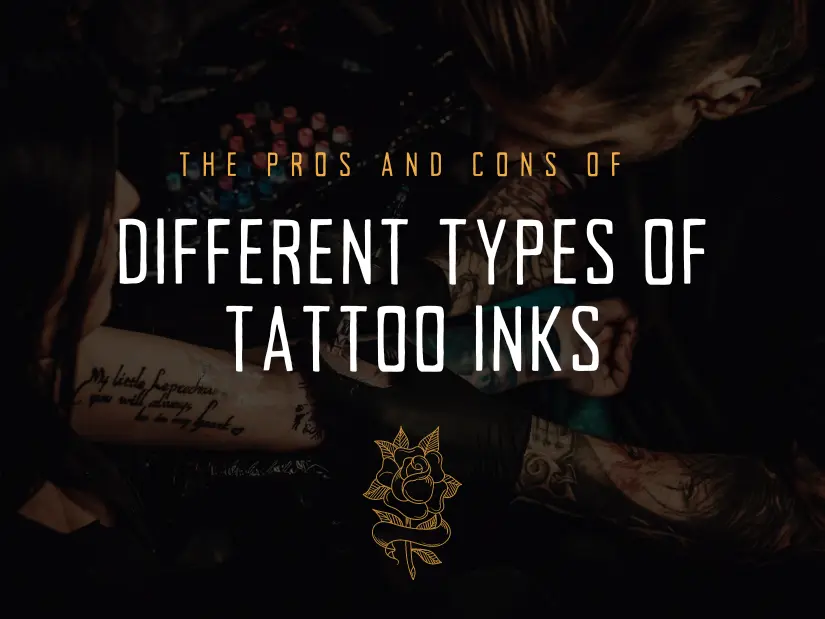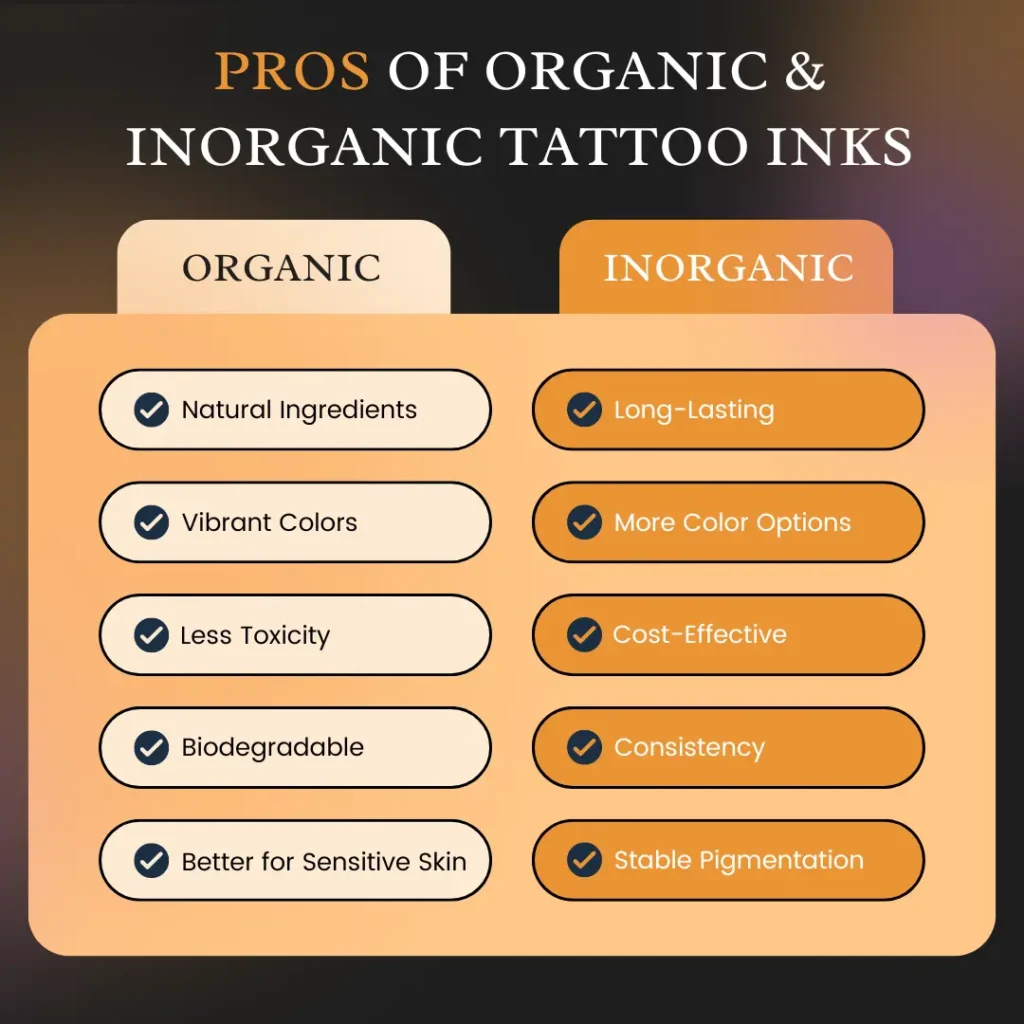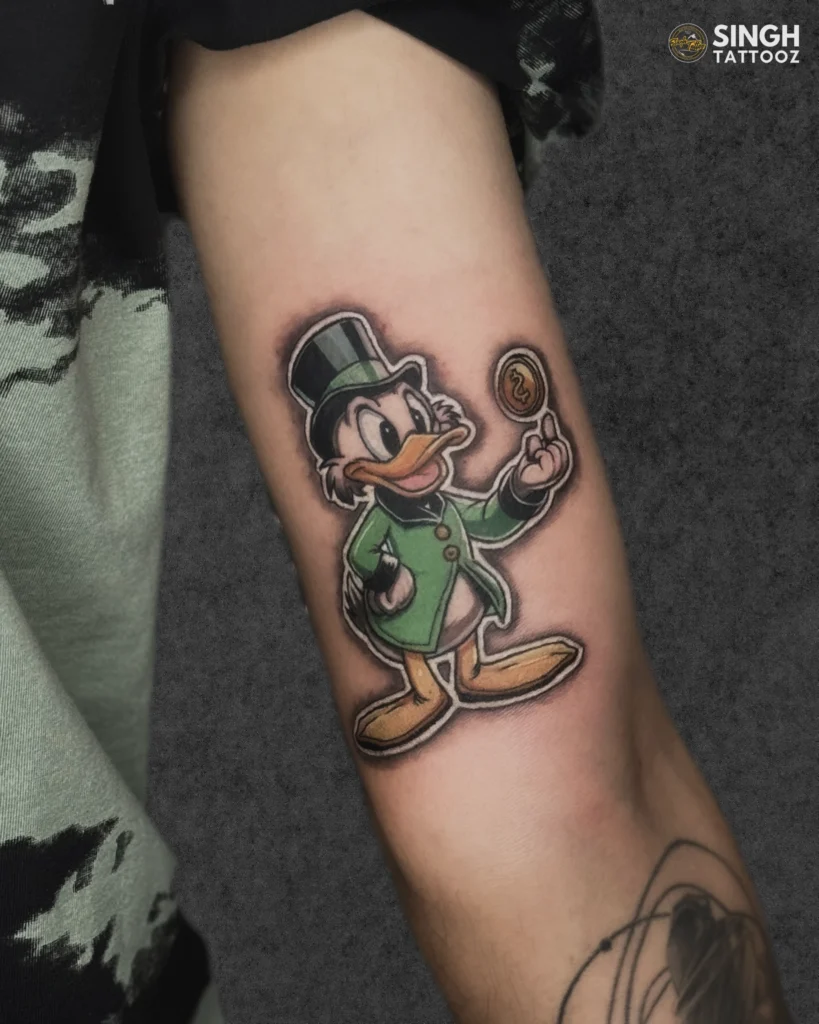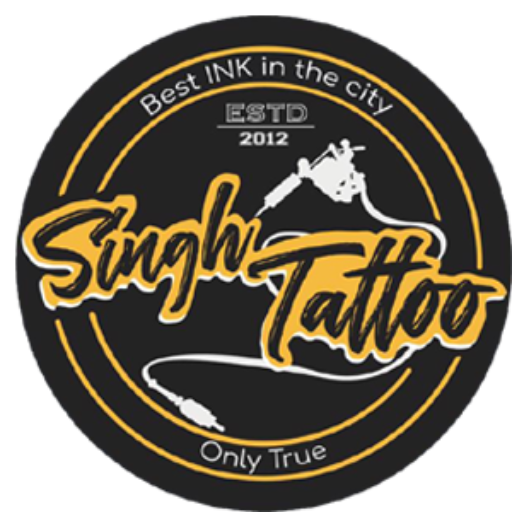Best Tattoo Studio in India | Best Tattoo Artists

Learn about the different types of tattoo inks, including their ingredients and effects. Enhance your tattoo experience by choosing the right ink today.
The Pros and Cons of Different Types of Tattoo Inks
Tattooing is an ancient art form that has evolved significantly over time. Today, tattoo inks are more advanced than ever, offering a wide range of options for both artists and clients. Whether you’re a seasoned tattoo enthusiast or considering your first piece, understanding the types of tattoo inks used in the process is essential. This guide will walk you through the various types of inks, including permanent tattoo ink, and help you make an informed decision about your next tattoo.
What is Tattoo Ink?
Tattoo ink is a liquid that contains pigments, which are responsible for the color, and a carrier, which helps transfer the pigments into the skin. The quality of the ink can significantly impact the final look of your tattoo, as well as its longevity. While most tattoo inks are designed to be permanent, there are also semi-permanent and temporary options available.
Permanent Tattoo Ink
Permanent tattoo ink is the most commonly used type of ink in tattooing. Once applied, it remains in the skin for life, though it may fade over time due to factors like sun exposure, ageing, and skin type. Permanent inks are made of various pigments, including organic, inorganic, and even metal-based compounds, each offering different shades and qualities.
Key Characteristics of Permanent Tattoo Ink:
(1) Durability: Permanent inks are designed to last a lifetime, making them ideal for those who want a long-lasting tattoo.
(2) Variety: Available in a wide range of colors, allowing artists to create intricate and detailed designs
(3) Safety: Reputable tattoo inks are regulated to ensure they are safe for use on the skin, though it’s always wise to check the ingredients if you have allergies.
Organic Tattoo Inks
Organic tattoo inks are made from natural ingredients, including plant-based pigments. These inks are often preferred by those looking for a more eco-friendly option or who have concerns about the potential toxicity of certain synthetic inks..l
Pros of Organic Tattoo Inks:
Inorganic tattoo inks are made from metal salts and oxides. These inks are known for their durability and the wide range of colors they offer. Inorganic inks are commonly used in permanent tattoo ink formulations.
Cons of Organic Tattoo Inks:
(1) Limited Colors: While vibrant, the range of colors may be more limited than synthetic inks.
(2) Potential Allergies: Some people may still be allergic to certain natural ingredients.
Inorganic Tattoo Inks
Inorganic tattoo inks are made from metal salts and oxides. These inks are known for their durability and the wide range of colors they offer. Inorganic inks are commonly used in permanent tattoo ink formulations.
Pros of Inorganic Tattoo Inks:
(1) Durability: Known for their long-lasting nature, making them a popular choice for permanent tattoos.
(2) Wide Range of Colors: Offers a broad spectrum of colors, including some that are difficult to achieve with organic inks.
(3) Consistency: Provides consistent results, making them a favorite among professional tattoo artists.
Cons of Inorganic Tattoo Inks:
(1) Metal Allergies: Some individuals may be allergic to the metal components in these inks.
(2) Fading: Over time, some inorganic inks may fade, especially if exposed to sunlight.

Vegan Tattoo Inks
Vegan tattoo inks are free from animal products and are not tested on animals. These inks are a popular choice among those who follow a vegan lifestyle or who are concerned about animal welfare.
Pros of Vegan Tattoo Inks:
(1) Ethical Choice: Free from animal-derived ingredients, aligning with vegan principles.
(2) Safety: Generally made from natural ingredients, reducing the risk of skin irritation.
(3) Environmental Impact: Often more environmentally friendly than traditional inks.
Cons of Vegan Tattoo Inks:
(1) Availability: Not all tattoo studios may carry vegan inks, so it’s important to ask in advance.
(2) Color Range: While improving, the range of colors may be more limited compared to non-vegan inks.
Glow-in-the-Dark Tattoo Inks
Glow-in-the-dark or UV-reactive tattoo inks are designed to glow under ultraviolet (UV) light. These inks are often used for creating tattoos that are only visible under certain lighting conditions.
Pros of Glow-in-the-Dark Tattoo Inks:
(1) Unique Aesthetic: Offers a unique and eye-catching effect, especially in nightlife settings.
(2) Variety: Available in several colors, providing versatility in design.
Cons of Glow-in-the-Dark Tattoo Inks:
(1) Safety Concerns: Some glow-in-the-dark inks have raised safety concerns, so it’s important to choose high-quality products.
(2) Fading: May fade more quickly than traditional inks, especially with frequent exposure to sunlight.
Blacklight Tattoo Inks
Similar to glow-in-the-dark inks, blacklight tattoo inks are designed to be visible under UV light. However, they don’t glow on their own and require exposure to UV light to be seen.
Pros of Blacklight Tattoo Inks:
(1) Subtle Design: Perfect for those who want a tattoo that’s only visible under certain conditions.
(2) Safe Options Available: While not all blacklight inks are created equal, many safe options are on the market.
Cons of Blacklight Tattoo Inks:
(1) Fading: Watercolor tattoos may fade faster than traditional tattoos, requiring touch-ups.
(2) Skill Required: Requires a highly skilled artist to achieve the desired effect.

Henna Tattoo Inks
Henna tattoo inks are made from natural henna plant extracts and are used to create temporary tattoos. These tattoos are popular in many cultures and are often used for special occasions.
Pros of Henna Tattoo Inks:
(1) Temporary: Ideal for those who want to experiment with a tattoo without the commitment.
(2) Natural Ingredients: Made from natural henna, reducing the risk of allergic reactions.
Cons of Henna Tattoo Inks
(1) Limited Colors: Typically only available in shades of brown or red.
(2) Short Lifespan: Henna tattoos usually last for 1-2 weeks.
Temporary Tattoo Inks
Temporary tattoo inks are designed to mimic the appearance of permanent tattoos but fade over time. These inks are perfect for those who want to try out a tattoo design before committing.
Pros of Temporary Tattoo Inks:
(1) No Commitment: Allows for experimentation without the permanence of traditional tattoos.
(2) Safe: Generally safe for all skin types, though it’s always good to do a patch test.
Cons of Temporary Tattoo Inks:
Short Lifespan: Usually lasts for a few days to a week, depending on the ink and care.
Factors to Consider When Choosing Tattoo Ink
When choosing a tattoo ink, there are a few things to keep in mind:
(1) Skin Type: Some people have sensitive skin. It’s important to choose an ink that is less likely to cause irritation.
(2) Tattoo Style: Different tattoo styles require different types of ink. For example, black and grey tattoos will obviously require black ink.
(3) Artist Experience: Your tattoo artist will have experience with different types of ink and can help you choose the right one for your tattoo.
Safety and Aftercare
attooing is a process that breaks the skin. This means there is a risk of infection. It’s important to choose a reputable tattoo shop and follow your artist’s aftercare instructions carefully.
Understanding the different types of tattoo inks can help you make an informed decision when choosing your next tattoo. Whether you opt for the long-lasting durability of permanent tattoo ink or the unique appeal of glow-in-the-dark inks, knowing your options ensures that your tattoo will meet your expectations and stand the test of time. Always consult with a professional tattoo artist who can guide you through the process and help you choose the best ink for your design.
Frequently Asked Questions-
1. What’s the difference between traditional and organic inks?
Traditional inks are made from pigments and a carrier solution, while organic inks are made from natural materials. Organic inks are often considered safer and more eco-friendly, but they may not be as vibrant or long-lasting as traditional inks.
2. Are vegan tattoo inks really a thing?
Absolutely! Vegan tattoo inks don’t contain any animal-derived ingredients, which is super important for many artists and clients. They’re made from plant-based materials and are often more ethical for those who care about animal welfare.
3. .What’s the deal with colored vs. black inks?
Black ink is often used for outlines and shading, while colored inks can add vibrancy and detail to designs. Colored inks generally fade faster than black, but they can make your tattoo pop in a way that black alone might not.
4. . Are there any “unsafe” inks I should worry about?
Yes, some inks contain harmful substances like heavy metals or other toxic ingredients. It’s important to choose a reputable tattoo artist who uses high-quality, safe inks. Always ask about the ingredients if you’re unsure!
5 . Can I choose my ink color?
Definitely! You can choose from a wide range of colors, and many artists are happy to mix custom shades for your design. Just keep in mind that different pigments may have different properties and longevity.
6 . Can I mix different types of tattoo inks?
Mixing different types of inks is generally not recommended as it can affect the quality, safety, and appearance of the tattoo. Always consult with a professional tattoo artist before mixing inks.



